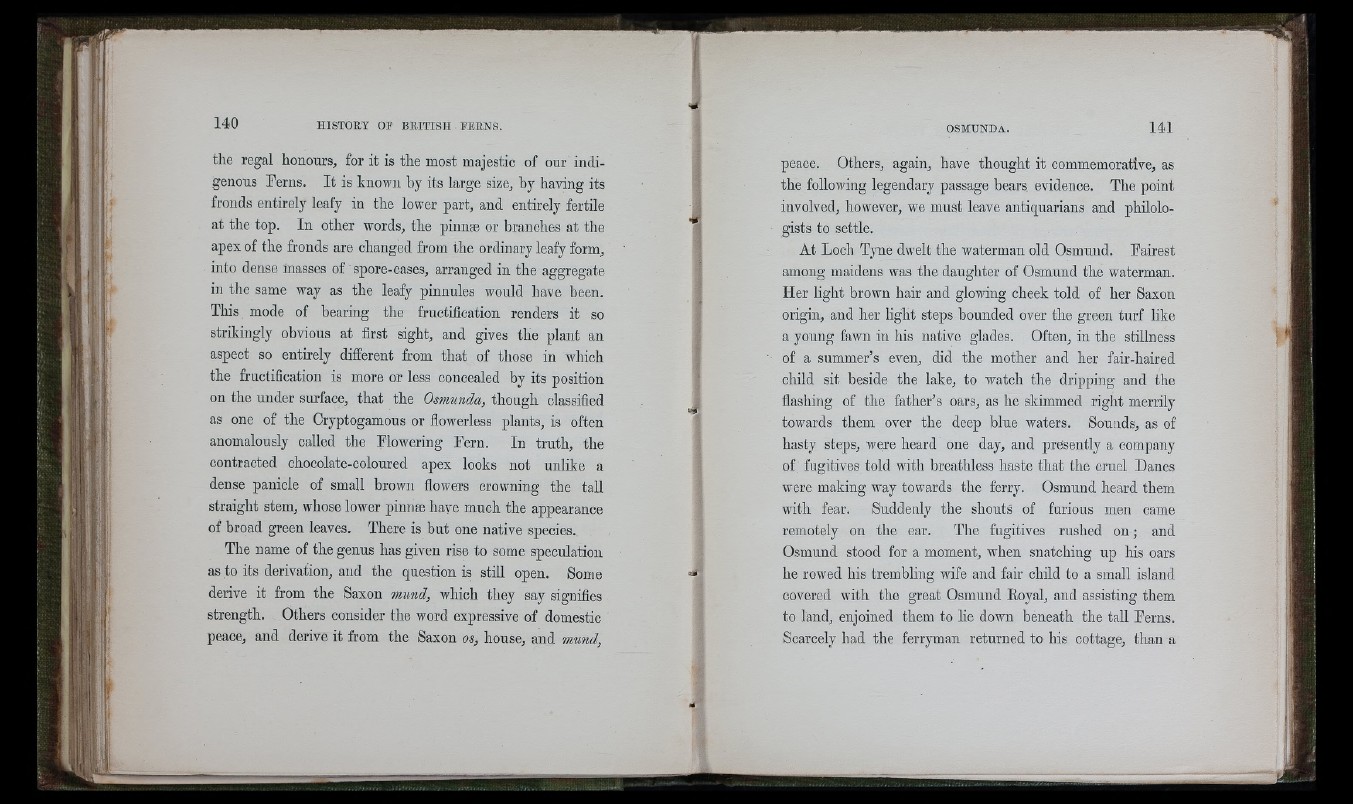
■IJ:i I ■
: if
H !i
jl
-1 ;
I Hi
the regal honours, for it is the most majestic of our indigenous
Eerns. It is known by its large size, by having its
fronds entirely leafy in the lower part, and entirely fertile
at the top. In other words, the pinnæ or branches at the
apex of the fronds are changed from the ordinary leafy form,
into dense masses of spore-cases, arranged in the aggregate
in the same way as the leafy pinnules would have been.
Tliis mode of hearing the fructification renders it so
strikingly obvious at first sight, and gives the plant an
aspect so entirely different from that of those in which
the fructification is more or less concealed by its position
on the under surface, that the Osmunda, though classified
as one of the Cryptogamous or flowerless plants, is often
anomalously called the Elowering Eern. In truth, the
contracted chocolate-coloured apex looks not unlike a
dense panicle of small brown flowers crowning the tall
straight stem, whose lower pinnæ have much the appearance
of broad green leaves. There is but one native species.
The name of the genus has given rise to some speculation
as to its derivation, and the question is still open. Some
derive it from the Saxon mund, which they say signifies
strength. Others consider the word expressive of domestic
peace, and derive it from the Saxon os, house, and mwid.
<4
peace. Others, again, have thought it commemorative, as
the following legendary passage bears, evidence. The point
involved, however, we must leave antiquarians and philologists
to settle.
At Loch Tyne dwelt the waterman old Osmund. Eairest
among maidens was the daughter of Osmund the waterman.
Her light brown hair and glowing cheek told of her Saxon
origin, and her light steps bounded over the green turf like
a young fawn in his native glades. Often, in the stillness
of a summer’s even, did the mother and her fair-haired
child sit beside the lake, to watch the dripping and the
flashing of the father’s oars, as he skimmed right merrily
towards them over the deep blue waters. Sounds, as of
hasty steps, were heard one day, and presently a company
of fugitives told with breathless haste that the cruel Danes
were making way towards the ferry. Osmund heard them
with fear. Suddenly the shouts of furious men came
remotely on the ear. The fugitives rushed o n ; and
Osmund stood for a moment, when snatching up liis oars
he rowed his trembling wife and fair child to a small island
covered with the great Osmund Royal, and assisting them
to land, enjoined them to lie down beneath the tall Eerns.
Scarcely had the ferryman returned to his cottage, than a